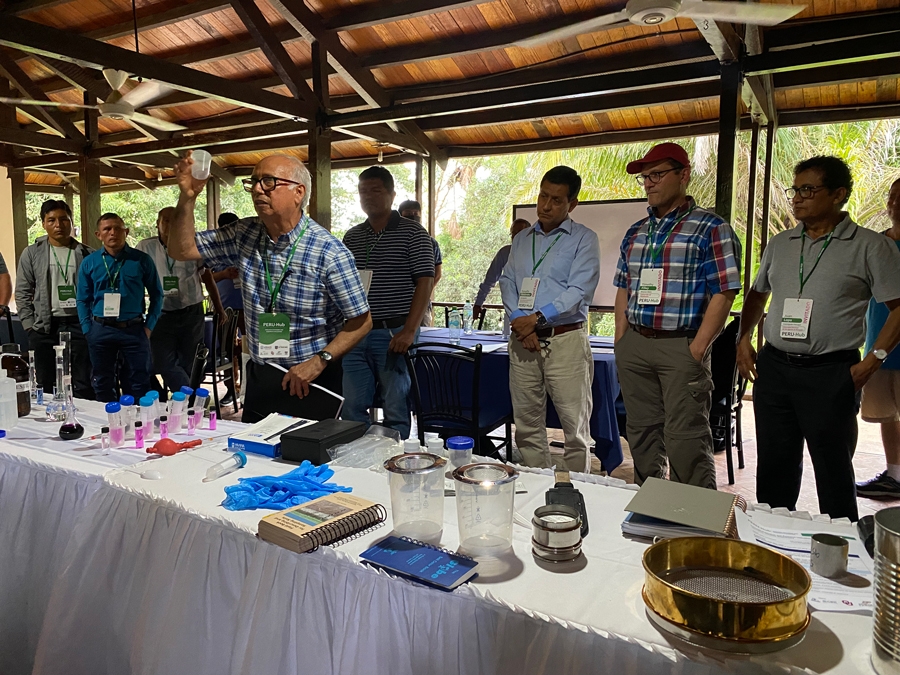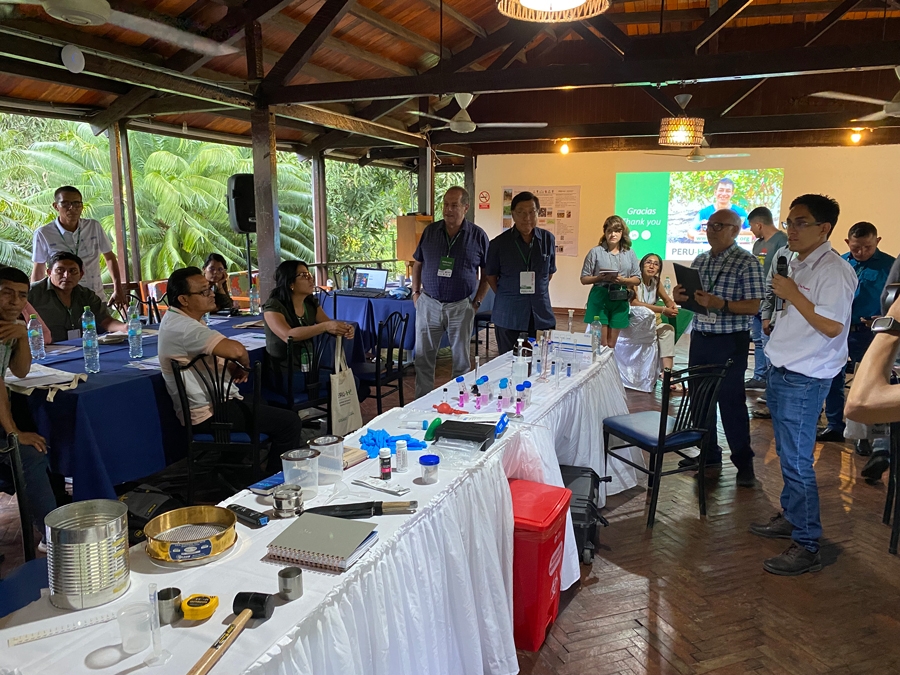The University of Oklahoma recently signed a multi-institutional contract with the United States Agency for International Development that will dedicate $15 million toward the creation of the Peru Extension and Research Utilization, or PERU-Hub, to support sustainable agricultural, economic and social improvement in the San Martin region of the Peruvian jungle. Researchers from OU will receive nearly $1.5 million to support the project, coordinated through the university’s Institute for Resilient Environmental and Energy Systems.
The overall project is led by Peru’s Universidad Nacional Agraria La Molina, with additional partners including Utah State University, Purdue University and the International Center for Tropical Agriculture, as well as 10 regional and national government bodies, Peruvian universities, and food and agricultural companies, both foreign and domestic.
Director of PERU-Hub Hugo Villachica, Ph.D., said the PERU-Hub consortium of partners will address a range of issues during the five-year project. Farmers in the Amazon region have limited access to agricultural innovation and new markets, as well as scarce opportunities for women and indigenous communities. They also lack access to reliable, actionable information like real-time weather reports and soil quality and land use suitability maps, all of which impact their ability to adapt to regional stresses like climate change, severe weather, legacy land degradation and socioeconomic pressures.
“PERU-Hub will seek to train farmers, women and indigenous communities in the use of improved technologies in current and new crops, in food transformation, access to markets and in marketing, improving agricultural productivity and profitability with sustainable management of resources,” Villachica said.
“There is abundant knowledge in the Peruvian universities like UNALM, as with our international partners at the University of Oklahoma, Utah State University and Purdue University, but what we need is for that knowledge to be available to the farmer,” he added. “We are not trying to necessarily discover new things in PERU-Hub; what we want is to support and continue what has already been done, and we will see more profitable options for the farmer than what already exists.”



